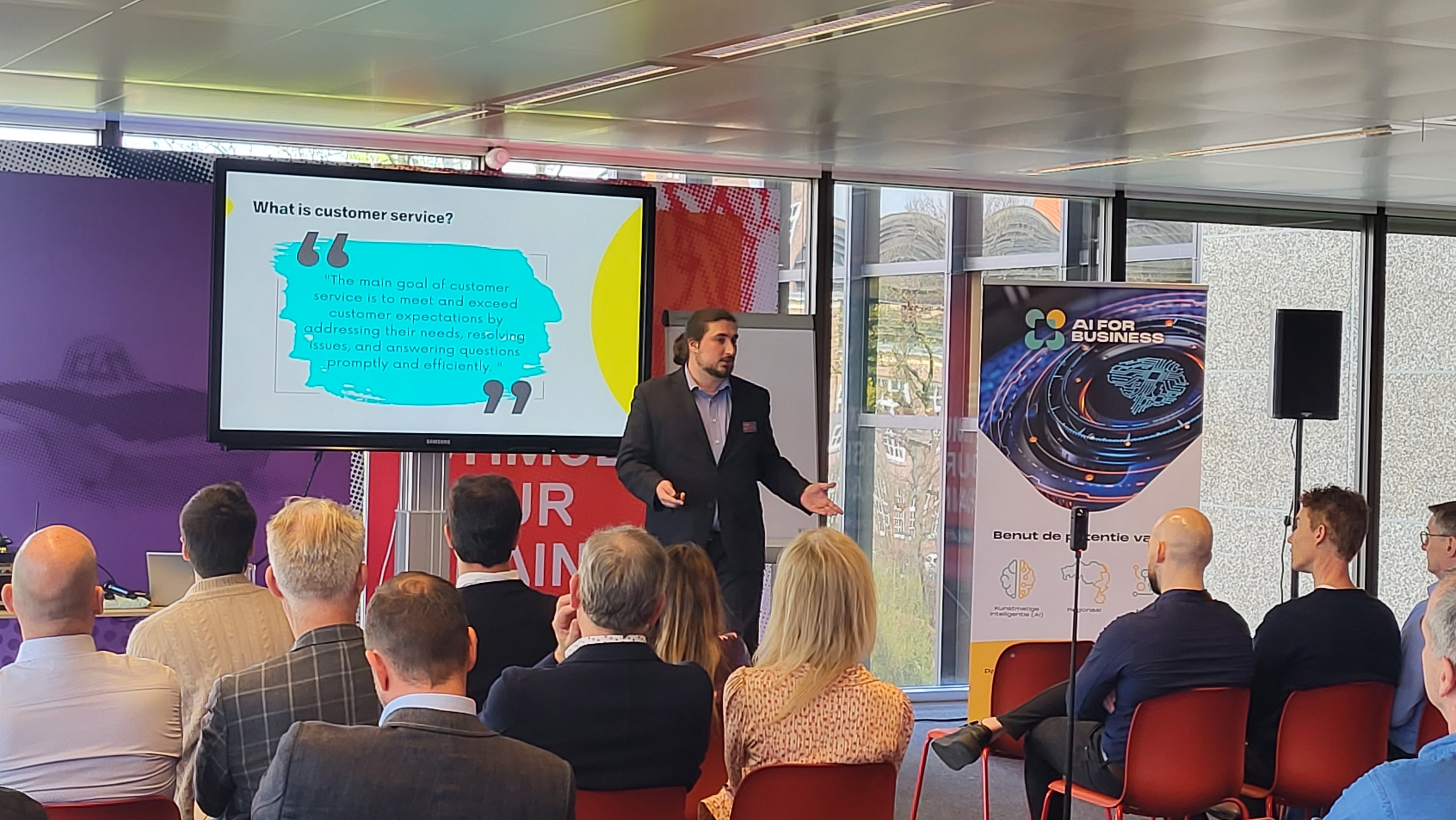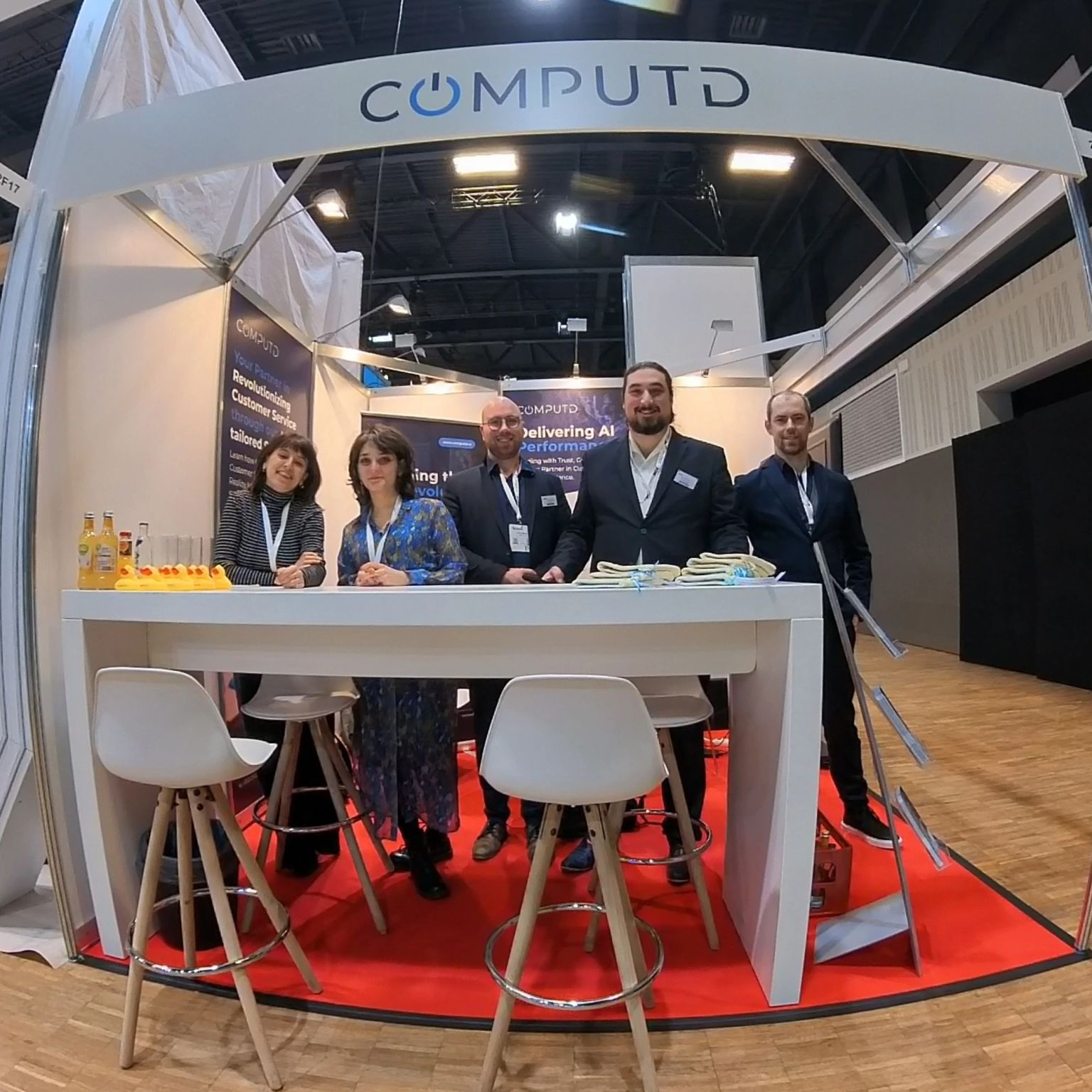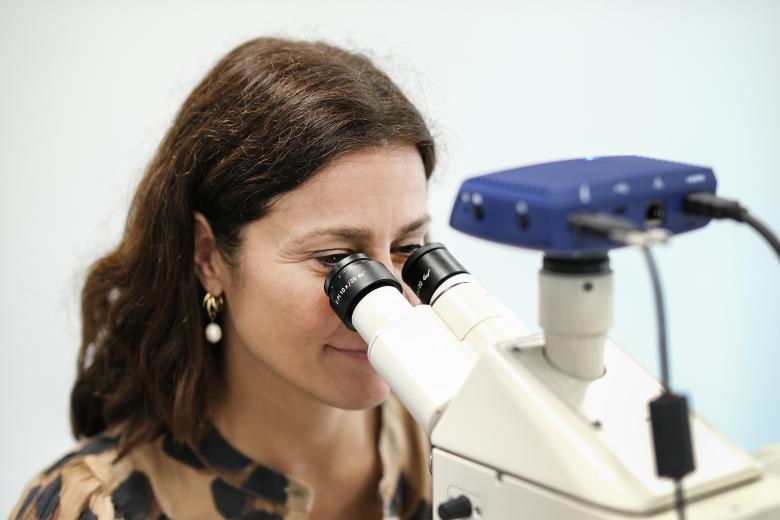AI for Limburg’s businesses
Having come to South Limburg to study at Maastricht University’s Department of Advanced Computing Sciences, Marcell Ignéczi went on to co-found COMPUTD, a company dedicated to bringing AI solutions to the region he now calls his home.
Last year, the AI consulting company COMPUTD won at the Brilliant Business Awards, an initiative of the municipalities of Sittard-Geleen, Beek and Stein to honour innovative, sustainable, pioneering and successful entrepreneurs in the Western Mining Region. A career highlight for cofounder and owner Marcell Ignéczi, which was hard to foresee – and not just because it’s incredibly specific…
Ignéczi grew up in a small town north of Budapest and moved to Brussels at the age of 13. Upon completing his European Baccalaureate, it was clear he wanted to study something related to data science and computing. “I went to an international school and loved the atmosphere. I didn’t want to go back to Hungary; so my choices were basically the Netherlands or the UK.”
Ignéczi attended Maastricht University’s Open Days and was sold. “The education really is top notch at Maastricht University. At the time, 2012, the Project-Based Learning approach at the Department of Advanced Computing Sciences was really unique at the time.”
Text continues below the photo.

A unique education
After completing the Data Science and Artificial Intelligence bachelor’s programme and having enjoyed his experience very much, Ignéczi decided to stay on and study for an MSc Data Science for Decision Making. All the while, he was working to finance his studies, doing jobs from handy man to customer service agent. Eventually, while still studying, he started working part-time for Mercedes Benz as a data scientist.
Ignéczi had always been interested in entrepreneurship. “I remember talking to my mentor Frank Thuijsman as early as my first semester about starting a company.” Attending consultants’ presentations about digital technology at his work for Mercedes rekindled this passion.
“As a data scientist, I wanted to know the details and a step-by-step plan of how they would actually use technology to solve problems. They couldn’t really provide that and I realised there was a gap in the market.” Ignéczi convinced two fellow Department of Advanced Computing Sciences students to found COMPUTD. One of them, Pieter Schaap, is still at the company as manager and CTO.
Entrepreneurship and helping businesses
“The Netherlands is a great place to start a business. The process is straightforward; there isn’t too much bureaucracy and there’s a good support structure. We also got great advice from our accountant about which legal structure to choose, etc.” Ignéczi concedes that it would have been easier to start and grow in the Randstad but points out that South Limburg has a strong manufacturing and customer service sector. For these businesses, the benefits of AI are obvious; but Ignéczi wants COMPUTD to be more than that. “We want to demystify and democratise AI; that also means providing useful solutions to small and medium companies in the region.”
COMPUTD has worked with bigger companies in South Limburg like Mercedes Benz, VDL Nedcar or Boels, as well as medium-sized businesses such as AgriDirect, 4Plus or Tracey. “We also work with smaller local enterprises, like a company that renovates stairs. We built an AI tool that optimises scheduling, that is to say which technicians to send when and where accounting for their specialities, expertise, where they are driving in from and so forth.”
Text continues below the photo.
The Netherlands is a great place to start a business. The process is straightforward; there isn’t too much bureaucracy and there’s a good support structure.
Marcell Ignéczi
AI as a growth catalyst for South Limburg
COMPUTD’s services range from advice and workshops to developing AI solutions. “Think anything with large amounts of data, from language processing to workforce planning.” Current projects include working with several bakeries across Limburg to help them forecast demand and thus prevent food waste while optimising business. “AI is not a luxury product for the select few. The area is ripe for digitalisation and many local companies will benefit from it.”
Of course, it was not all plain sailing. “Initially it was very tough. Covid hit just after we founded the company. Due to the uncertainty, all the companies we were negotiating with pulled out. Word of mouth is very important in Limburg and it was difficult to establish ourselves initially. My co-founder Pieter Schaap started a secondment at Europe’s largest technology firm ASML after we’d had no revenue for the first six months. That tided us over and we got the chance to prove ourselves; now we’re a significant player in the region.”
Maastricht University & Burgundian converts
Ignéczi very much comes across as a fan and ambassador of South Limburg. He is married to a French-Dutch national, whom he met at Maastricht University. “We’ve bought a house in Heerlen and the company is going very well. I love Limburg and I definitely want to stay here.” His Dutch is progressing too. “By now I can understand pretty much everything, also in a professional or technical context, but I still have a mental block when it comes to speaking…”
“Maastricht University is definitely one of the strengths of the region. I’ve stayed in touch after graduation; we attend the career day of the Department of Advanced Computing Sciences, we have a couple of interns from that department, we’re providing master’s projects and we’re thinking about joining KE@Work.” The expertise and research output along with the production of highly qualified data scientists and AI specialists are an obvious advantage, but Ignéczi also sees a secondary benefit. “As we grow, we also need to recruit more senior people. We can’t compete with the salaries and cultural offer of Amsterdam, Brussels or Cologne, but Maastricht is incredibly international for such a small city – I think it’s pretty much unique in that way and it is a selling point for people to move here.”
Text: Florian Raith
Maastricht University is definitely one of the strengths of the region. I’ve stayed in touch after graduation; we attend the career day of the Department of Advanced Computing Sciences, we have a couple of interns from that department, we’re providing master’s projects and we’re thinking about joining KE@Work.
Marcell IgnécziAlso read
-
ICC@M at Maastricht University: competing with the best, shaping the future
Roy Broersma, Academic Director of ICC@M, bridges academia and business, enhancing Maastricht University’s impact. He aims to strengthen regional ties, foster bold ideas, and prepare students for real-world challenges.

-
A global perspective, a personal mission: Alumnus Samuel Fung joins SBE’s International Advisory Board
With nearly 30 years of international leadership experience, SBE alumnus Samuel Fung brings a powerful combination of global industry insight and personal passion for education to the School’s International Advisory Board. In this interview, Samuel shares what inspired him to join the board, how his...

-
Fresh air
Newly appointed professor Judith Sluimer (CARIM) talks about oxygen in heart functioning and the 'fresh air' the academic world needs.
